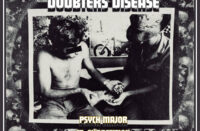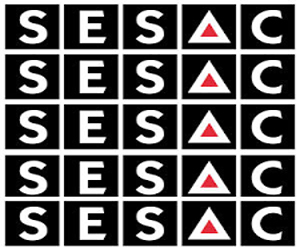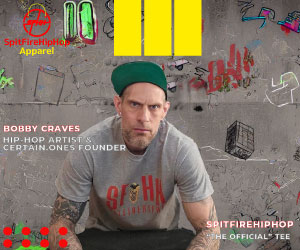
How Scott La Rock and KRS-One Changed the Course of Hip-Hop History
In the gritty streets of the South Bronx during the mid-1980s, Hip-Hop was more than music; it was a movement born from struggle. Two unlikely figures, Scott La Rock and KRS-One, would come together to form Boogie Down Productions (BDP), a group that fused street wisdom with social consciousness and changed Hip-Hop forever. Their journey was marked by revolutionary music, industry betrayal, personal tragedy, and an enduring legacy.
Scott La Rock: A Social Worker with a DJ’s Soul
Born Scott Sterling, Scott La Rock was a college graduate from Castleton State College in Vermont who returned to New York to work as a social worker at the Franklin Men’s Shelter in the Bronx. But his passion was music. As a DJ, Scott was a connector of beats, people, and ideas.
At the shelter, he met a sharp-witted homeless teenager named Lawrence Parker, better known by his graffiti tag and future stage name, KRS-One, which stands for Knowledge Reigns Supreme Over Nearly Everyone. Scott recognized raw talent in KRS-One, and instead of writing him off, he became both mentor and collaborator.
Together, with DJ D-Nice, they formed Boogie Down Productions, a name drawn from the nickname of their borough, “The Boogie Down Bronx.”
The Impact of Criminal Minded: A Raw Blueprint for Hardcore Hip-Hop BDP’s groundbreaking debut, Criminal Minded, released in 1987, combined KRS-One’s brash lyricism with Scott La Rock’s stripped-down, reggae-infused production. Songs like “South Bronx” and “The Bridge Is Over” not only ignited the Bridge Wars, a lyrical feud with MC Shan and the Juice Crew, but also shifted the sound of Hip-Hop toward a more hardcore, minimalist aesthetic.
The album, released through B-Boy Records, became an underground classic and a street-certified milestone. But behind the scenes, things were far from ideal.
The B-Boy Records Controversy: A Lesson in Industry Exploitation
B-Boy Records, co-owned by Jack Allen and William Kamarra, provided Boogie Down Productions with their first deal, but it came with strings attached. Though Criminal Minded gained massive traction, KRS-One and the group reportedly received no royalties and little transparency.
KRS-One would later speak openly about the exploitation, calling the deal one of the biggest mistakes of their early career. Unfortunately, stories like this were, and still are, all too common in the music industry, especially for young Black artists navigating the business without guidance.
The Tragic Death of Scott La Rock: A Hip-Hop Pioneer Lost Too Soon
In a heartbreaking twist, just as BDP was gaining momentum, Scott La Rock was shot and killed on August 27, 1987, while trying to resolve a personal dispute involving D-Nice. He was only 25 years old.
Scott’s death was one of the first high-profile losses in Hip-Hop, shaking the entire community and marking a turning point in the genre’s relationship with violence and conflict. For KRS-One, it was both a personal and professional earthquake. But instead of folding, he chose to evolve.
From Battle Rapper to “The Teacher”: KRS-One and the Rise of Conscious Hip-Hop
Following Scott’s death, KRS-One carried on the Boogie Down Productions name, transforming it into a platform for what he would call “edutainment”—a mix of education and entertainment.
Albums like By All Means Necessary (1988), Ghetto Music: The Blueprint of Hip Hop (1989), and Edutainment (1990) tackled systemic racism, Black empowerment, police brutality, and institutional failure.
KRS-One became a cultural force, touring, lecturing, and pushing back against the commodification of Hip-Hop. He didn’t chase chart hits. Instead, he built a catalog rooted in truth and empowerment, becoming one of the most respected voices in Hip-Hop history.
The Legacy of Boogie Down Productions: More Than Music
Though BDP officially disbanded in the early ‘90s, its influence lives on. KRS-One continued as a solo artist, releasing classic albums and speaking at universities. He also launched the Stop the Violence Movement, in response to the very real issues plaguing Black communities and the Hip-Hop world.
Scott La Rock, even in death, remains a symbol of what Hip-Hop could be a balance of intellect, community service, and artistry. He was posthumously honored in numerous songs and retrospectives as one of the genre’s first martyrs.
The Enduring Impact of Scott La Rock, KRS-One, and Boogie Down Productions
The story of Boogie Down Productions is one of vision, loss, redemption, and resilience. Scott La Rock and KRS-One didn’t just make music—they built a movement. They transformed personal hardship into cultural commentary and challenged the industry to respect Hip-Hop as both an art form and a force for change. Whether you’re diving into the gritty anthems of Criminal Minded or the cerebral manifestos of Edutainment, you’re witnessing the legacy of pioneers who turned pain into poetry—and left an indelible mark on Hip-Hop.















Pingback: LadyBoss Gives Positivity With “Self Destruction” – SpitFireHipHop
Pingback: Cymarshall Law’s Drops New Album, ‘The Peaceful Warrior 2: Raw Self-Expression’ feat. Planet Asia, Sadat X & more – SpitFireHipHop